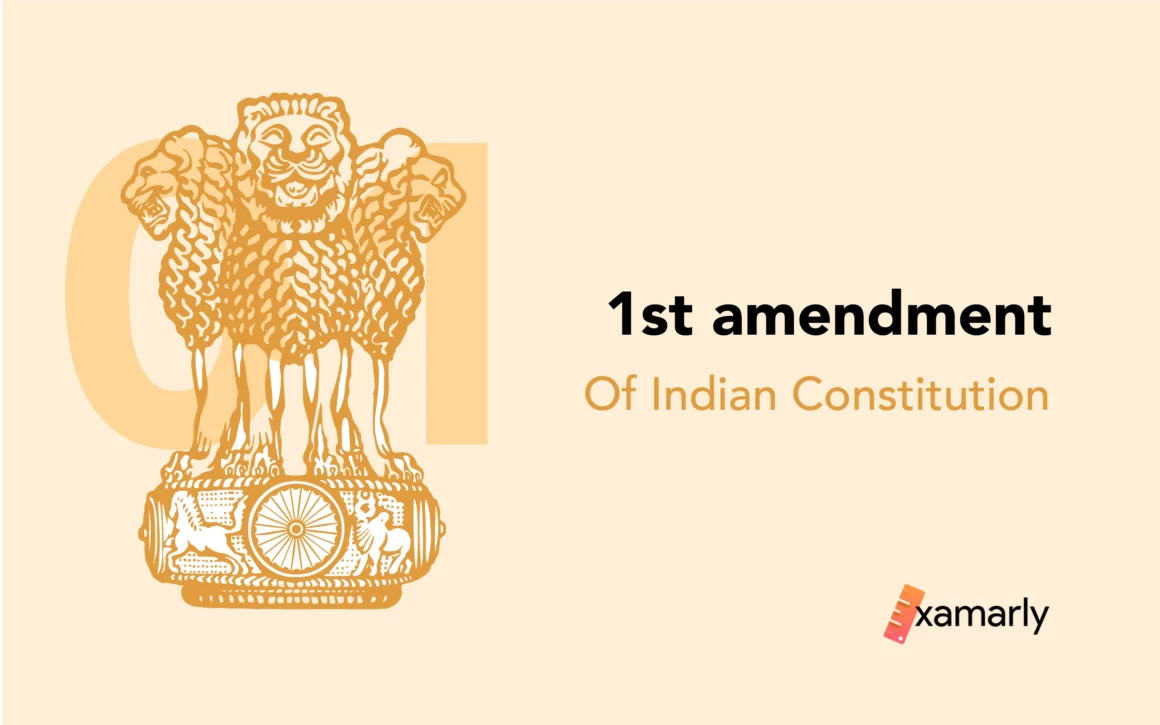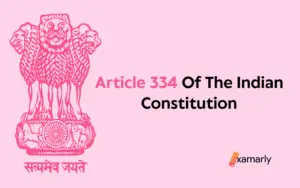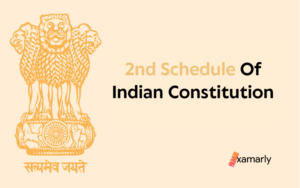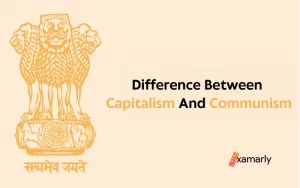The 1st amendment of Indian constitution precisely amended the Fundamental Rights clauses of the Indian Constitution. It gave ways to limit freedom of speech and expression, supported measures to abolish zamindari, and made it clear that the right to equality does not preclude the passing of laws that give “particular consideration” to society’s most vulnerable groups.
Jawaharlal Nehru, who was India’s prime minister at the time, made the motion on May 10 of that year, and Parliament passed it on June 18 of the same year.
This Amendment established a precedent for rewriting the Constitution to override judicial decisions that prevented the government from carrying out its alleged obligations to specific policies and programs.
History
On the 16th of May 1951, Jawaharlal Nehru stood in parliament and moved for a bill to be referred to a select committee. The Constitution (First Amendment) Bill changed the new Constitution. It had to come into effect less than sixteen months earlier.
The bill would pass sixteen days later. It changes the Constitution even before the first elections of independent India.
The key part of the amendments in respect of articles consisted of changes to three constitutional rights, namely:
– the right to freedom of speech
– the right to non-discrimination
– the right to private property (acquisition of estates)
The minor amendment added new grounds for restricting the freedom of speech into Article 19(2). Speech could now have reasonable restrictions in the interests of “public order” and “friendly relations with foreign states,” but all restrictions would now have to be “reasonable” as well.
Amendment of Article 15 (right to non-discrimination) took place. In the new Article 15(4), so as not to obstruct special provisions for backward classes. The newly inserted articles 31A and 31B exempted land reforms from constitutional scrutiny.
Freedom Of Speech
Article 19(1)(a) of the Indian Constitution deals with Freedom of Speech and Expression.
The heart of Article 19 says: “Everyone has the right to freedom of opinion and expression, this right includes freedom to hold opinions without interference and to seek, receive and impart information and ideas through any media and regardless of frontiers.”
Although this right is not absolute, it is generally recognized by the courts as various rights of citizens, which is a part of the basic structure of the constitution.
In a democracy, freedom of speech protects an individual’s right to understand political issues and participate in decision-making.
Moreover, it allows individuals to express their views on a wide variety of subjects without fear of retaliation by the government. The protection of this right has made it one of the most valued values in modern democracies.
The Freedom of Speech does not absolve an individual from all blame, it will still hold a person culpable if his practice of the right begins to encroach and/or stop other citizens from practicing their rights.
However, the grounds for restrictions on freedom being placed must be ‘reasonable’, as defined by the court, to not be reduced to being simply an exercise in futility.
Freedom Of Trade
Article 19(1)(g) of the Indian Constitution grants citizens the freedom to engage in any vocation, trade, or business, subject to reasonable limitations that the State may impose “in the interests of the general public.” Although the terms given are sufficient to encompass any nationalization plan, it was deemed appropriate to put the matter beyond doubt by adding clarification to Article 19(6).
Upholding Land Reforms
The Indian Parliament noted that despite the provisions of Article 31’s clauses (4) and (6), the validity of agrarian reform measures passed by State Legislatures had become the subject of protracted litigation, delaying the implementation of these crucial policies that would have had a significant impact on a large number of people. To support proper actions, a new article 31A was introduced. In addition, a recent article 31B with the retroactive application was added to confirm 13 zamindari abolition-related laws.
See Also – 3rd Amendment Of Indian Constitution
Equality
As a Directive Principle of State Policy, Article 46 states that the State shall protect the weaker sections of the population from social injustice. Also, promote their economic and educational interests with special care. Article 15(3) was appropriately expanded to prevent any special provisions made by the State for the social, economic, or educational progression of any disadvantaged class of citizens from being contested based on discrimination.
Need For The 1st Amendment Of Indian Constitution
A few issues have come to light during the previous fifteen months of the Constitution’s operation as a result of court rulings and announcements, particularly about the chapter on fundamental rights. According to some courts, the freedom of speech and expression granted by article 19(1)(a) of the constitution does not make a person liable even if they support violent crimes like murder. Freedom of speech and the press are not seen as prohibiting the State from punishing or preventing abuse of these rights in other nations with codified constitutions.
Although the quoted language is broad enough to embrace whatever nationalization plan the State may implement, it is nonetheless preferable to provide clarification to article 19 to put the matter to rest (6). Article 31 is another one with which there have been unforeseen issues. Despite the provisions of clauses (4) and (6) of article 31, the validity of the agrarian reform laws passed by state legislatures over the past three years has become the subject of protracted litigation, delaying the implementation of these crucial laws that will have a significant impact on a large number of people.
The major goals of this bill are to fully secure the constitutional legality of zamindari abolition legislation in general and a few specific State Acts in particular by amending article 19 in the manner outlined above. The chance has been taken to suggest a few modest changes to other articles to resolve any issues.
The State should take special care to advance the educational and economic interests of the weaker segments of the population. Also safeguard them from social injustice, according to article 46, which establishes it as a guiding principle of State policy. It is suggested that article 15(3) be appropriately extended. It is extended so that any special provisions the State may make for the educational, economic, or social advancement of any disadvantaged class of citizens may not be contested on the grounds of being discriminatory. This Bill also includes a few adjustments that have been deemed necessary about sections that deal with calling and proroguing Parliamentary sessions. A few small changes have also been made to the following articles- 341, 342, 372, and 376.
Case Study
The Constitution (First Amendment) Act, 1951 was enacted to resolve several issues brought on by the Supreme Court’s ruling in several instances, including the Romesh Thappar Case, among others.
The Madras Maintenance of Public Order Act, 1949 Act was invalidated by the Supreme Court in the case of Romesh Thappar v. the State of Madras in 1950 because it infringed the fundamental right to freedom of speech and expression guaranteed in Part III of the Constitution.
The Supreme Court also overturned the East Punjab Public Safety Act, 1949’s provisions in the case of Brij Bhusan v. the State of Delhi because they violated the right to free speech and expression.
Later in 1950, many High Courts used the Supreme Court’s reasoning to invalidate several portions of the Press (Emergency Powers) Act, 1931, as well as Sections 124-A and 153 of the Indian Penal Code, which dealt with sedition and inciting hatred amongst groups, respectively.
The First Amendment Bill’s concerns extended beyond only the right to free speech. The Bill also intended to protect Zamindari’s abolition law by amending the property right. In addition, the Bill sought to amend Article 15 so that it would expressly permit the government to “make particular provision for the improvement of any socially and educationally backward classes of citizens.” In the State of Madras v. Champakam Dorairajan, the Supreme Court overturned caste-based reservations for Madras government professional colleges because they violated Article 29 of the Constitution (2).
These reasons, therefore, catalyzed the Constitution (First Amendment) Act of 1951.
Highlights of the 1st Amendment Of Indian Constitution
- The Constitution (First Amendment) Act of 1951 grants the state the authority to enact special legislation to benefit socially and economically disadvantaged groups. Clause 4 was inserted into Article 15 as a result of the Constitution First Amendment Act of 1951, allowing the State to impose reservations for the Scheduled Castes and Scheduled Tribes in educational institutions.
- Article 19 of the Indian Constitution’s promise of freedom of speech and expression was curtailed by the Constitution (First Amendment) Act, 1951. With the addition of three new grounds for limiting free speech and expression based on “friendly relations with a foreign State,” “public order,” and “incitement to an offense,” Article 19 was revised.
- The Indian Constitution now has a ninth schedule thanks to the Constitution (First Amendment) Act of 1951. The Ninth Schedule contains laws that are not subject to judicial review. Articles 31A and 31B were included to create the Ninth schedule. The government included Article 31A to safeguard legislation about agrarian reform and the abolition of the Zamindari system. According to Article 31B of the Indian Constitution, no law listed in the Ninth Schedule could be legally challenged. To put it another way, laws covered by the Ninth Schedule are exempt from judicial review. Article 31-B also has a retrospective nature, which means that when a statute is ruled unconstitutional by a court and then added to the Ninth Schedule, it is to be regarded as having been there from the beginning. As a result, it offers complete protection to all legislation included in the Ninth Schedule.
- According to the Constitution (First Amendment) Act of 1951, state trading and the nationalization of any firm or trade by the government do not violate a person’s right to engage in commerce if they are done in the interests of:
- State security
- Amicable relations with foreign states
- Public order
- Contempt of court
- Incitement to commit an offense
- Defamation
What Were The Implications Of The 1st Amendment?
- According to Article 31’s provisions, laws listed in the Ninth Schedule cannot be contested in court. It is so because they infringed upon citizens’ basic rights. Additionally retrospective in nature is Art. 31B. Therefore, even if a law is listed in the Schedule despite having already been ruled unconstitutional by a court of law, it is still assumed that it has been constitutionally lawful from the moment it was passed. In other words, when the Act is listed in the Schedule, the court’s ruling is nullified.
- For the purchase of estates or the taking over of management of any property or organization in the public interest, special power was handed. Article 31(A) has granted the State significant authority. It attempted to keep such purchases out of the purview of judicial review. This was performed under Articles 14 and 19.
- Although the Supreme Court ruled in the Kesavananda Bharati case of 1973 that judicial review cannot be abolished as a fundamental structure, Articles 31(A), 31(B), and 31(C) preserved land reform laws and prioritized the application of the Directive Principles over individual liberty.
- Numerous people abused the Ninth Schedule. More than 250 pieces of legislation are listed in the ninth schedule and are shielded from judicial review. With the growing number of laws listed under the Ninth Schedule, it has evolved into a constitutional wastebasket and a place where the current administration’s controversial laws can be stored. When the First Amendment was passed, a situation like this was not anticipated. For instance, to ensure the legitimacy of her victory, former prime minister Indira Gandhi amended the Representation of Peoples Acts of 1951 and 1974. It was done by adding them to the ninth schedule along with the Election Laws Amendment Act of 1975.
Conclusion
The first amendment to our constitution attempted to update and explain some of the most important elements in it. The Indian Constitution is rigorous and has undergone numerous revisions to the changing times that make it dynamic.






